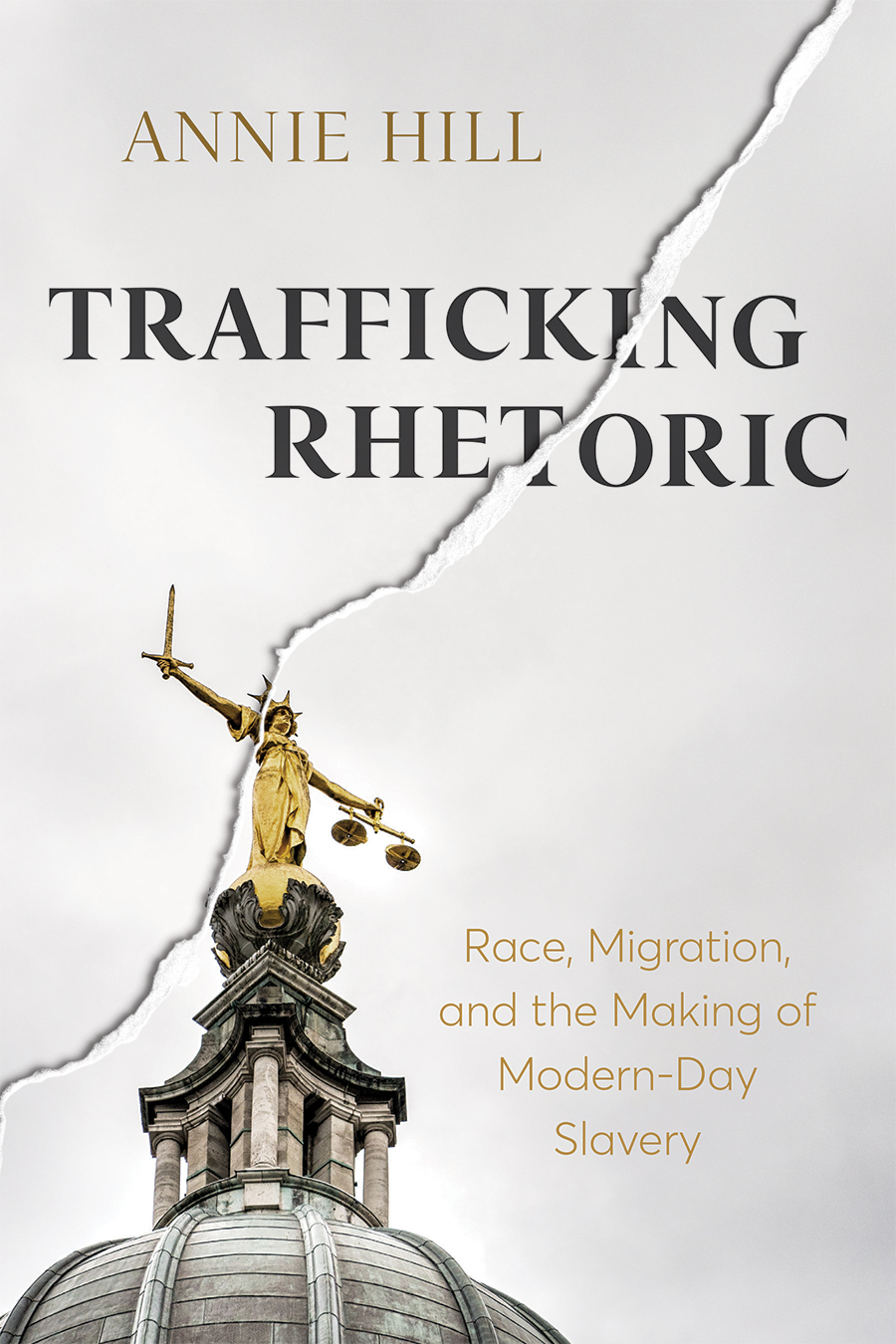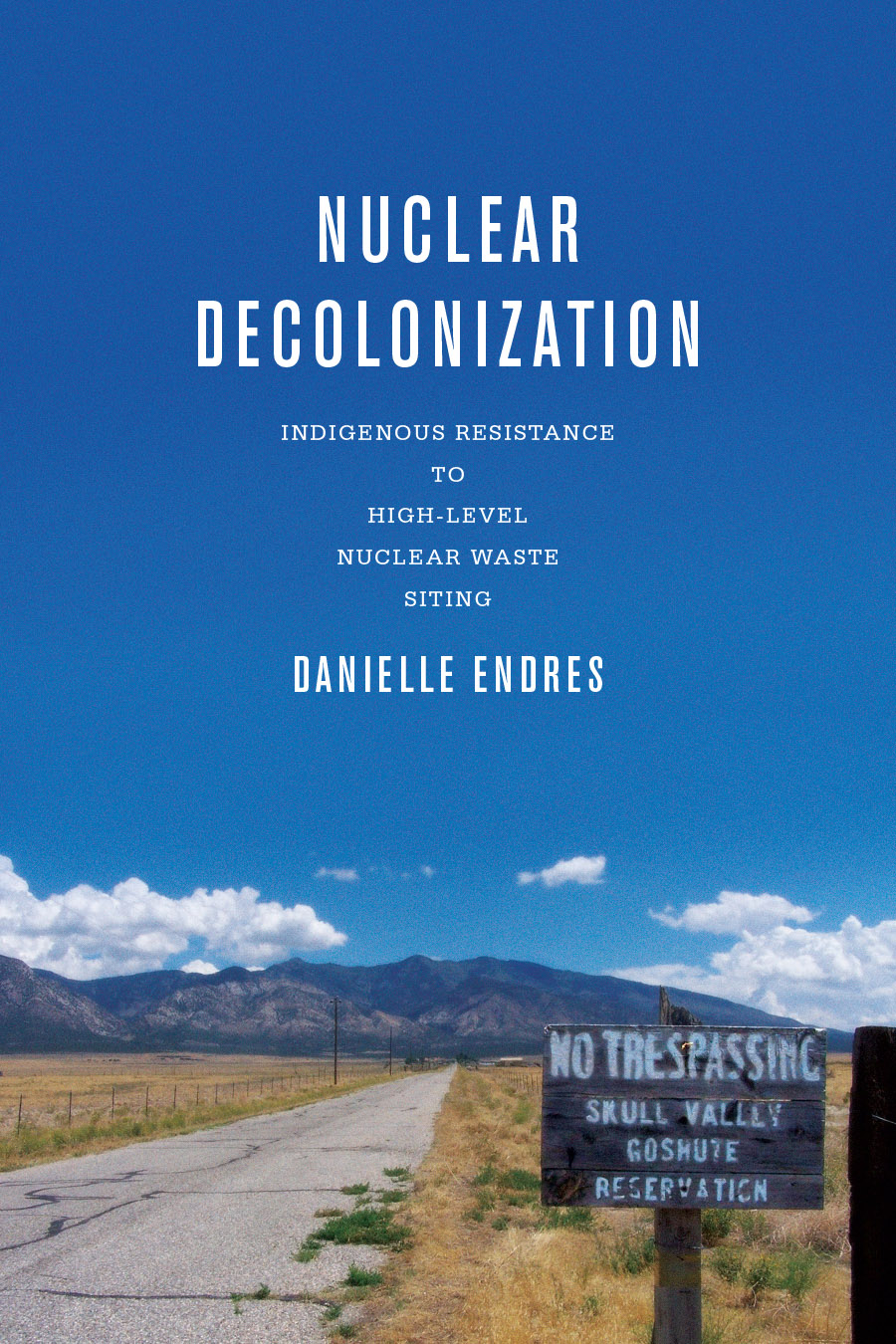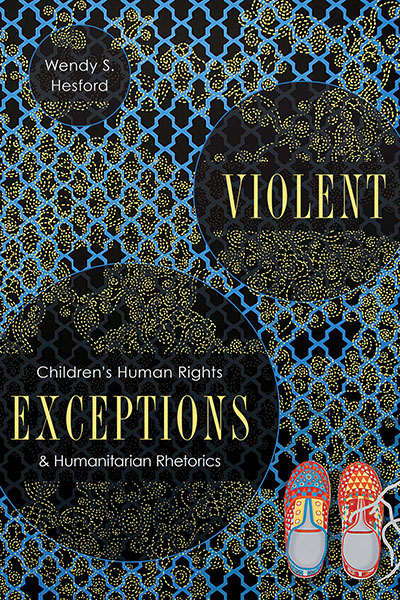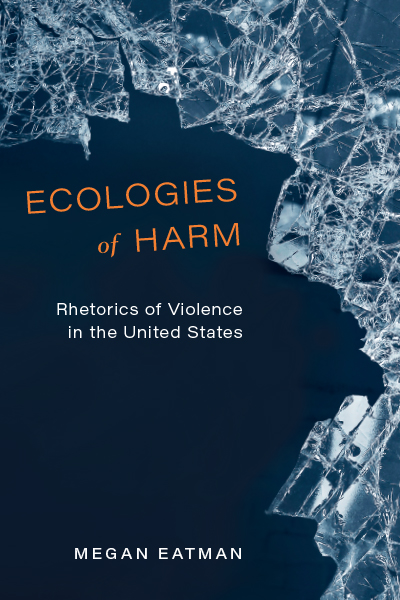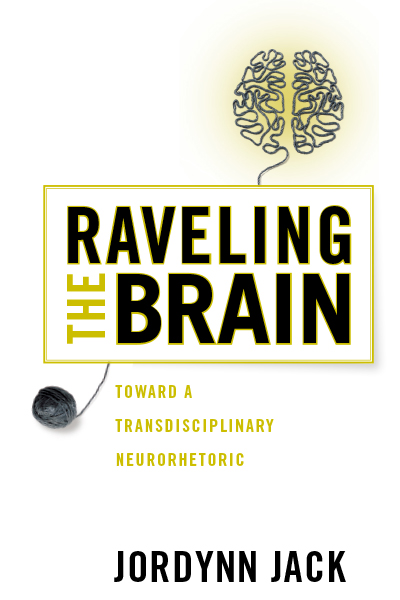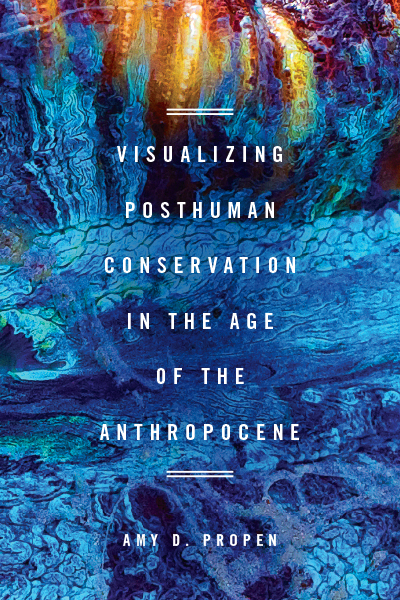New Directions in Rhetoric and Materiality
Edited by Wendy S. Hesford, Christa Teston, and Shui-Yin Sharon Yam
Editor Emeritus: Barbara A. Biesecker
New and forthcoming Titles:
Decolonial Conversations in Posthuman and New Material Rhetorics
Jennifer Clary-Lemon and David M. Grant, Eds.
Untimely Women: Radically Recasting Feminist Rhetorical History
Jason Barrett-Fox
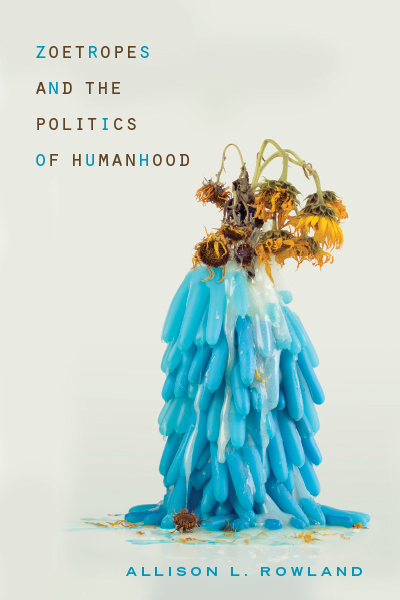
Zoetropes and the Politics of Humanhood
Allison L. Rowland
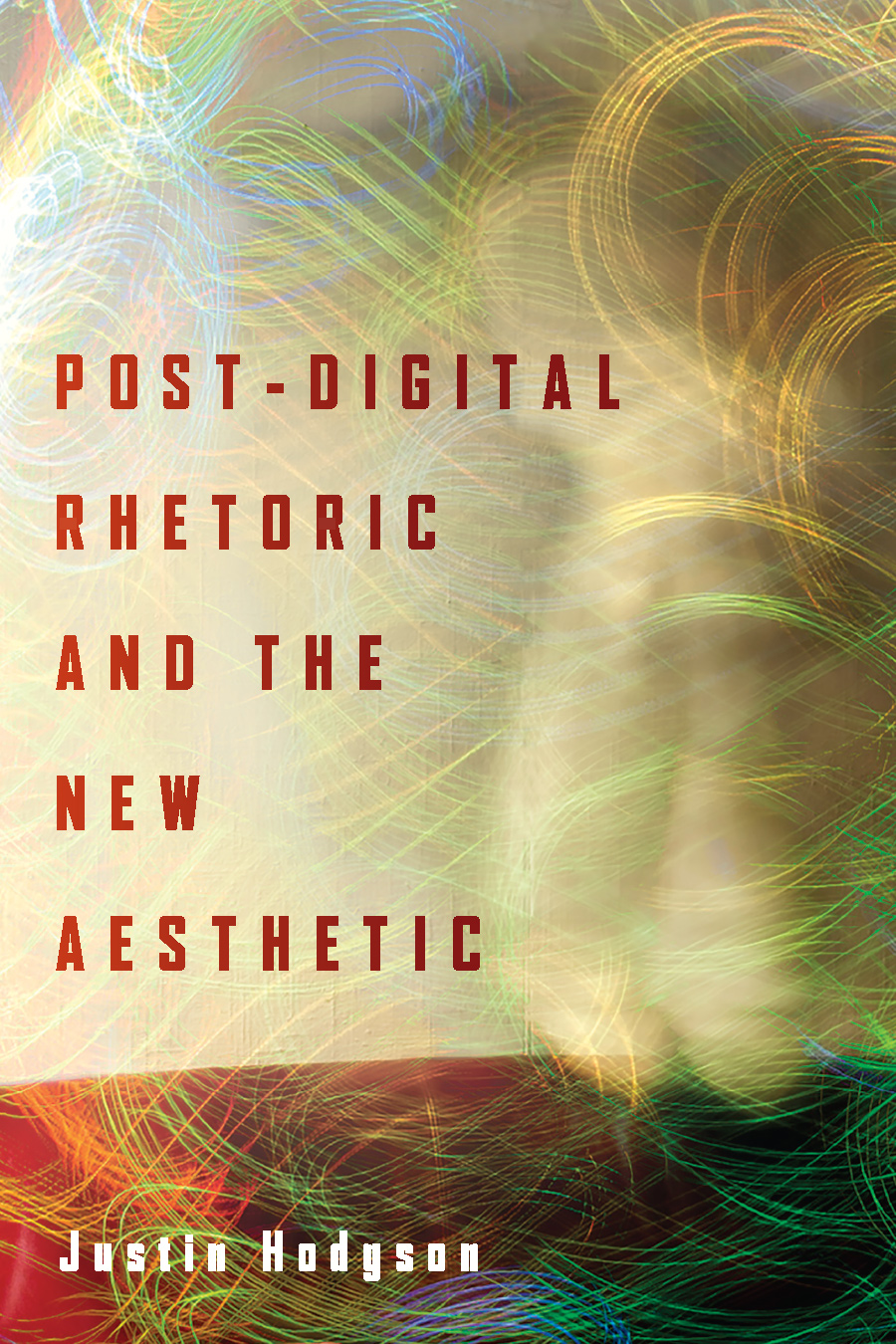
Post-Digital Rhetoric and the New Aesthetic
Justin Hodgson
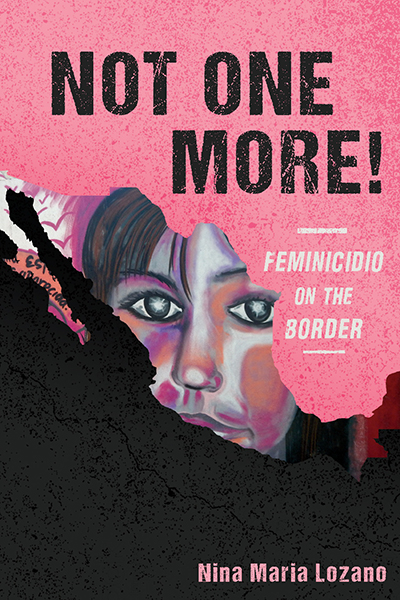
Not One More! Feminicidio on the Border
Nina Maria Lozano
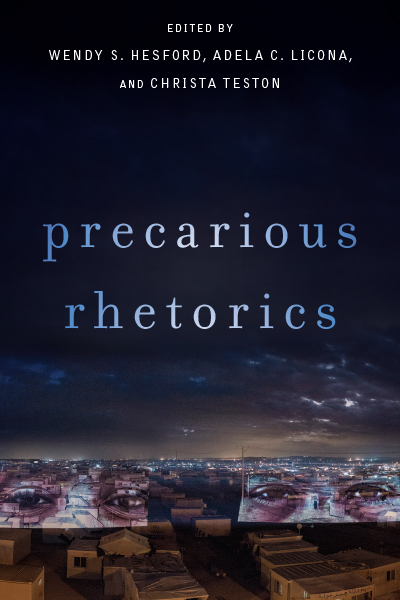
Precarious Rhetorics
Edited by Wendy S. Hesford, Adela C. Licona, and Christa Teston
Current conversations about rhetoric signal ongoing attentiveness to and critical appraisal of material-discursive phenomena. New Directions in Rhetoric and Materiality provides a forum for responding to and extending such conversations. Up until this point, the series has focused on publishing projects that pair rhetorical theory with an analysis of material conditions and the social-symbolic labor circulating therein. However, as events of great consequence continue to unfold—from violence based on misinformation, to continued police brutality, to immigration legislation and migration crises, to crackdowns on political dissent, to social injustices that have only gained strength under white supremacist systems and demagogic regimes around the world—it is clear the series must respond accordingly. Thus, while the series will still seek out projects focused on rhetoric's relationship to materiality, it will focus on publishing those that explicitly confront such events of great consequence. In particular, the series will amplify projects that examine intersecting material-rhetorical forces of oppression, power imbalances, and differential vulnerabilities, all of which contribute to what one series author identifies as “zoerhetorical sweep,” or the “fluctuating range” of how certain groups are differentially valued (Rowland, 2020, p. 17).
Among other topics and subjects, the series is especially interested in transnational and/or global materialist orientations to the following questions:
- What can rhetorical theory and/or methodologies contribute to contemporary conversations in rhetorics of space/place and/or critical geography?
- Who or what has (and/or conditions) agency in material-discursive networks (e.g., fetal tissue, deteriorating bridges, melting ice caps, international trade agreements, economic bubbles, to name only a few)?
- How are we to understand bodies as material-discursive phenomena? How does such an orientation alter our approaches to bioethics, biopolitics, and human rights?
- What does material rhetoric and/or theories of material-discursivity add to our understanding of pressing social issues (e.g., Islamic military activity; immigration legislation and migration crises; militarization of police in communities of color)?
Inquiries should be directed to Tara Cyphers at The Ohio State University Press. Book proposals should follow press guidelines.
About the Series Editors
Wendy S. Hesford is Professor of English at The Ohio State University and Ohio Eminent Scholar with affiliate appointments in Comparative Studies and Women’s, Gender, and Sexuality Studies. She is also presently the faculty director of the Global Arts + Humanities Discovery Theme. Her research and teaching interests focus on contemporary rhetorical theory, human rights law and cultural representations, transnational feminisms, and visual culture studies. She has authored three monographs: Framing Identities: Autobiography and the Politics of Pedagogy (Minnesota, 1999), for which she received the W. R. Winterowd book award; Spectacular Rhetorics: Human Rights Visions, Recognitions, Feminisms (Duke, 2011), for which she received the RSA book award; and, most recently, Violent Exceptions: Children’s Human Rights and Humanitarian Rhetorics (Ohio State, 2021). She is also co-editor, with Adela Licona and Christa Teston, of Precarious Rhetorics (Ohio State, 2018) and, with Wendy Kozol, of Just Advocacy: Women’s Human Rights, Transnational Feminisms, and the Politics of Representation (Rutgers, 2005) and Haunting Violations: Feminist Criticism and the Crisis of the “Real” (Illinois, 2001).
Christa Teston is Associate Professor of English at The Ohio State University. She is the author of Bodies in Flux: Scientific Methods for Negotiating Medical Uncertainty (Chicago, 2017) and co-edited a special issue of Technical Communication Quarterly focused on contemporary research methodologies in technical communication. With Wendy S. Hesford and Adela Licona, she co-edited Precarious Rhetorics, the first volume published in The Ohio State University’s New Directions in Rhetoric and Materiality series. Her research examines uncertainty in technoscientific and biomedical contexts, and offers implications for public policy, democratic deliberation, medical and scientific practice, and evidential design.
Shui-yin Sharon Yam is Associate Professor of Writing, Rhetoric, and Digital Studies and a faculty affiliate of Gender and Women’s Studies and the Center for Equality and Social Justice at the University of Kentucky. She is the recipient of the 2020 RSA Fellows’ Early Career Award. Her book Inconvenient Strangers: Transnational Subjects and the Politics of Citizenship (Ohio State, 2019) won the 2021 CCCC Outstanding Book Award and was shortlisted for the 2019 RSA Book Award. Her research focuses on questions of identity, citizenship, affect, race, and most recently, reproductive justice. She teaches courses on public advocacy, transnational rhetoric, digital composing, and political emotion. Her public writing can be found in Hong Kong Free Press, Hong Kong Protesting, Foreign Policy, Lausan, and The Asia Dialogue.


